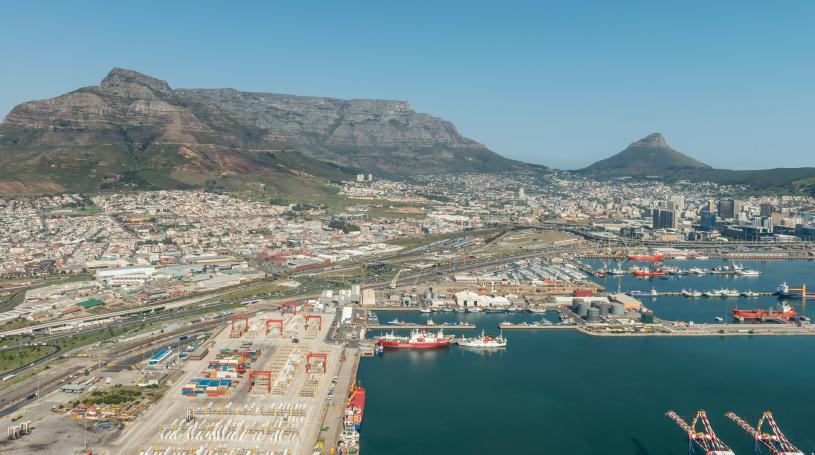Port inefficiency threatens to overtake loadshedding as single biggest threat to national wellbeing
Another year, another blast of hot air about the state of the nation.
But when the sound bites are all cleared away the Province still sits with the same enormous headache smack in the middle of the regional economy: Transnet.
Inefficiency at the country’s ports threatens to overtake load shedding as the single biggest threat to national wellbeing, that is if it hasn’t already done so. While businesses and wealthier households can invest in alternative power, there is no circumventing the country’s ongoing logistics crisis. In the case of the Western Cape, our economy is hostage to the nuts and bolts of gantry cranes and the staff that keep them going.
Port stakeholders, the Cape Chamber included, can be forgiven for feeling frustrated by the number of detailed power point presentations offered up by way of port corrective action, with the latest blueprint delivered earlier this month at yet another port stakeholder meeting. There is no shortage of promises, amidst an apparent shortage of just about everything else. Plans speak of new purchases and operational improvements – exactly what stakeholders hope to see in reality, rather than in policy frameworks.
There are also assurances, from the Presidency down to TNPA, of public-private partnership to address the most pressing challenges off the day. And yes, private concessions are forthcoming, each one hailed as proof of government’s commitment to economic development.
Yet underlying all of the verbiage is the same unanswered question, more troubling the longer it remains. Why is government holding on to the vital Cape Town container terminal? The steady decline of this most essential facility, the heartbeat of the local economy, is there for all to see. Even as government professes transparency and efficiency, it clings to the asset most in need of repair. The challenge at the port is not complexity or weather or equipment; it is merely the fact that, compared to the private sector, government is terrible at running a business.
Moving containers on and off ships happens speedily all over the world, often in circumstances a lot less resourced than Cape Town. It is not rocket science. Private sector companies produce vehicles consisting of 25 000 components; local firms build satellites that orbit the earth. Why not let the free market work out the best way to load a ship?
The continued failure to fix the container terminal doesn’t make sense. Or does it? Is there a logic to government’s dogged resistance to private sector partners inside the port’s key engine room?
The longer the port fails to deliver the more the numbers add up to dereliction of duty at a time when government preaches transparency but fails to put it into practice.
John Lawson
CEO of the Cape Chamber of Commerce & Industry

